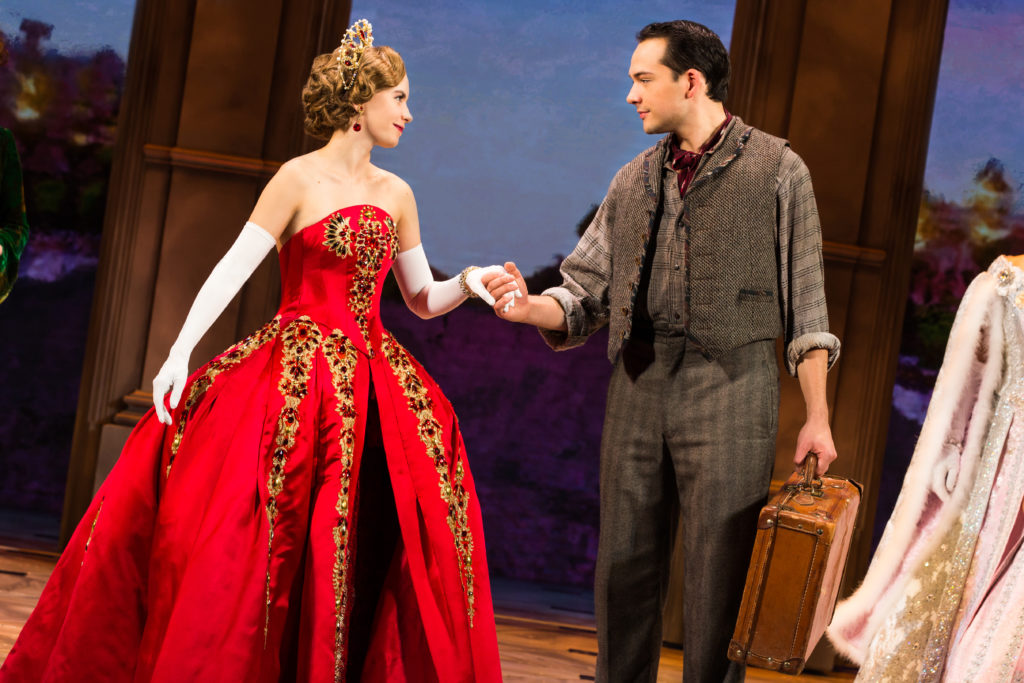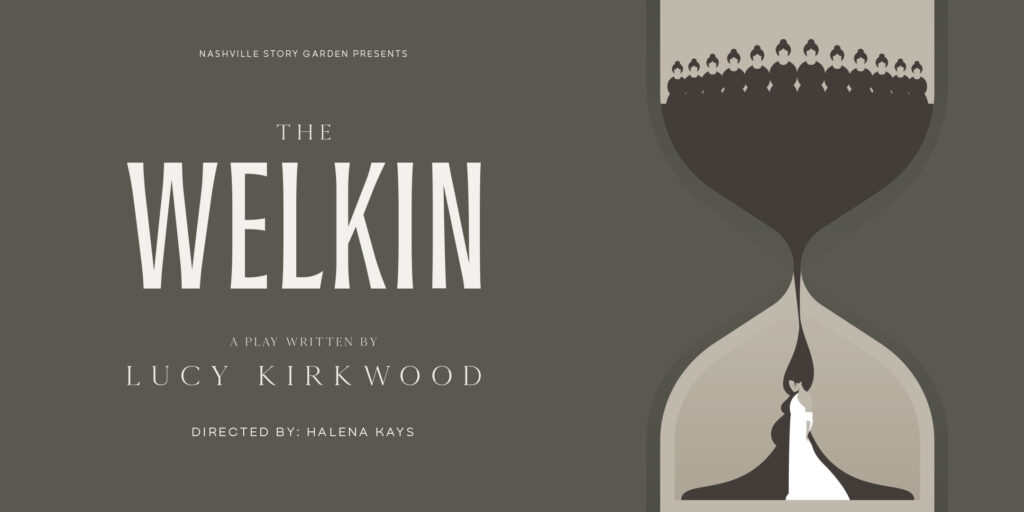
British playwright Lucy Kirkwood, whose previous works include NSFW, Bloody Wimmin, Chimerica and Mosquitos, can always be counted on to present through-provoking, female-centered, universally themed theatrical experiences. Her latest, The Welkin, is no exception. Having premiered across the pond in 2020, the US premiere, courtesy Nashville Story Garden, wraps its all-too-brief six performance this weekend with a final performance at 7p.m. Friday, September 30 at Riverside Revival (1600 Riverside Drive, East Nashville).
The Welkin seems somewhere between an all female 12 Angry Men, The Crucible and The Scarlet Letter, with maybe a little Handmaid’s Tale thrown in for good measure. While 12 Angry Men focuses on a group of men determining the guilt or innocence of a man accused of murder, Kirkwood’s The Welkin, set in 1759, presents 12 rural Suffolk UK women tasked to not determine a woman’s guilt or innocence, but rather to ascertain whether or not the already accused and convicted woman is with child or not. Their decision then establishing whether or not she be hanged in the public square or allowed to live…at least long enough to bring her child into the world. All this while the otherwise seemingly sleepy burg awaits the spectacle of Halley’s comet.
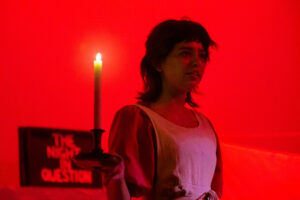 I was thrilled when Nashville Story Garden’s Lauren Berst reached out to me to ask me to attend opening night. A new play, in a new (for me) venue. That was enough, but add to that, the cast, many of whom I’ve seen in many of my favorite plays over the years, and a few I wasn’t familiar with…always a potential added bonus.
I was thrilled when Nashville Story Garden’s Lauren Berst reached out to me to ask me to attend opening night. A new play, in a new (for me) venue. That was enough, but add to that, the cast, many of whom I’ve seen in many of my favorite plays over the years, and a few I wasn’t familiar with…always a potential added bonus.
As the play begins, a title card is illuminated on stage reading simply ‘Housework’, while silhouetted images of the players performing various household chores are seen as shadows backlit on crisp white linens hanging across the stage like laundry on the line. The cast then, removes the draping fabric as the title card is changed to read ‘The Night In Question’ as we meet Ayla Williams as Sally Poppy as we witness a bit of what leads her to her eventual sentence. Williams is spectacular as the convicted murderess. She plays the role with spirit and a no-nonsense bite that also eventually reveals innocence lost, or rather, buried away inside her long before the night of the crime.
A later title card reading ‘The Empaneling’ is where we are first fully introduced to the rest of the cast. During the show’s opening week, assistant director Joe Mobley stepped in for Matthew Rose as Mr. Coombs, the jury-appointed liaison between the court and the women. He is at times humorous and a tad bullish as he wavers between being in the minority, but never forgetting he, as a man, is always in the majority.
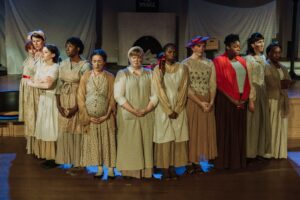 As for the jury of matrons, director Halena Kays has assembled a who’s who and a who will be stellar cast including Destinee Monet, Melodie Madden Adams, Tamara Todress, Diego Gomez, Candace-Omnira Lafayette, Jennifer Whitcomb-Oliva, Rachel Agee, Jessica Anderson, Lauren Berst, Megan Murphy Chambers, Matthew Rose, Inez, Rona Carter, Melinda Sewak and the aforementioned Ayla Williams. With Milly Mason and Jordan Bentley sharing the role of young Katy during the run and Brooke Ferguson understudy for all the women.
As for the jury of matrons, director Halena Kays has assembled a who’s who and a who will be stellar cast including Destinee Monet, Melodie Madden Adams, Tamara Todress, Diego Gomez, Candace-Omnira Lafayette, Jennifer Whitcomb-Oliva, Rachel Agee, Jessica Anderson, Lauren Berst, Megan Murphy Chambers, Matthew Rose, Inez, Rona Carter, Melinda Sewak and the aforementioned Ayla Williams. With Milly Mason and Jordan Bentley sharing the role of young Katy during the run and Brooke Ferguson understudy for all the women.
Nashville Story Garden’s co-artistic directors, Lauren Berst and Tamara Todress play Lizzy and Emma respectively. Lizzy is the neighborhood midwife, with ties to seemingly everyone, even the aforementioned Mr. Coombs. Berst’s Lizzy takes no guff from anyone and, in spite of her own demons and disappointments, seems to see the good in others. Meanwhile, Emma seems to reserve the majority of her interactions simply holding for disdain anyone she deems below her station. That said, Todress’ Emma is delightful in her disdain.
Of the women, many of them get their moment to shine thanks to the playwright’s clever unraveling of the story, and each and every woman’s background, character and involvement, therein. Perhaps none more than the aforementioned, Ayla Williams, who’s portrayal is at times subtle and at times so explosive she seems on the verge of madness, and who wouldn’t be, given the circumstances of her character’s predicament.
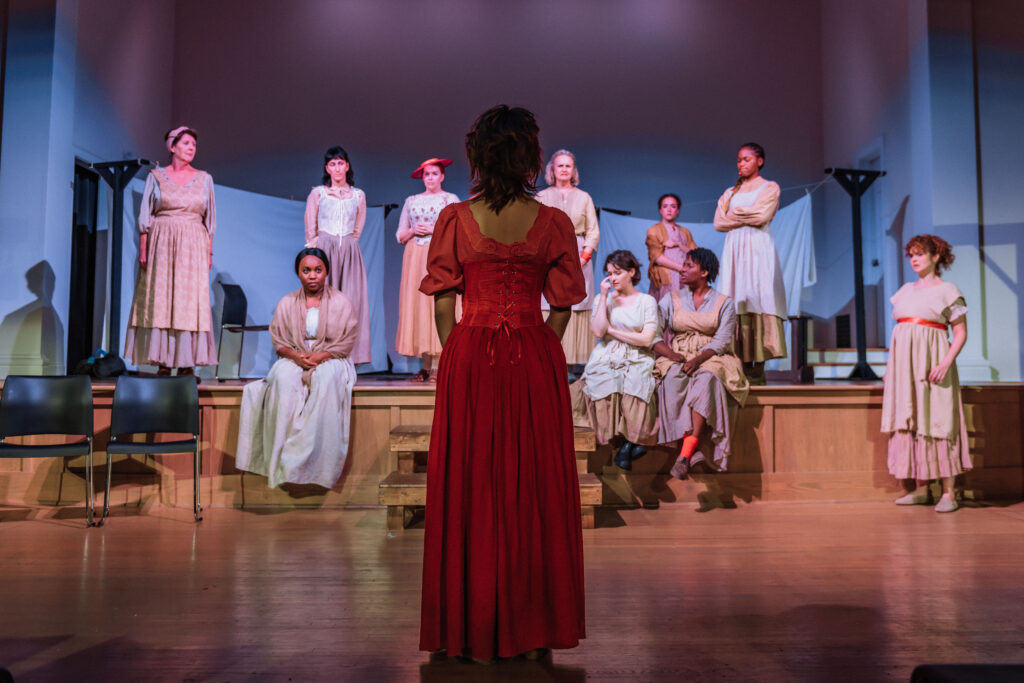
Rachel Agee is marvelous as Judith. She’s played as a bit boisterous and cheeky, perfectly aligning with Agee’s generous talents at both. Jennifer Whitcomb-Oliva is splendid as well. Her Helen seems meek and sweet, but there’s some fierceness fueled by sadness revealed as the play unfolds. Other standouts include Rona Carter as Sarah Smith, portraying the eldest member of the group and Melinda Sewak’s Sarah Hollis, who without uttering one word, provides insight to her character’s pain.
Once the verdict is in, and the action nears its end, there’s a post-show scene in which the women reappear in modern wardrobe performing those same household tasks seen in the opener. A jarring reminder that what the audience has witnessed, and what these character’s portray of a world three centuries ago, seems just as much at the forefront of society today. As the adage states, “a woman’s work is never done” and I’ll add, neither is her fight for herself, her body and her rights.
Off-stage, the team responsible for technical aspects of the play should also be celebrated. Jonathan Nicholson’s stark but effective set, Tony Nappo’s mood-enhancing lighting and Matt Logan, listed as costume consultant. Of the costumes, maybe I read more into it than I should…or should I say ‘red’ more into it, but I love that each women, save one, has a bit of red fabric accented somewhere on her wardrobe. To me this symbolized life’s blood, and with the subject matter revolving around whether or not a new life exists in the belly of the accused, that just made sense. Again, perhaps reading more into it than I should, as more and more was revealed about each woman, I wove my own story in my head as to the placement of the red fabric on each woman, and even the amount of it used in her costume. Without giving too much away, a few examples: Lizzy’s arms are both bound with red fabric wrapped ‘round them, perhaps symbolic of her ties to most of the women. Helen is wrapped in a shawl of red, a visual manifestation of the sadness and burden that envelopes her. Even Sarah Smith, who only has a tiny string of red around one finger…by chance suggesting something she need recall. As I said, maybe I read too much into the fabric and the placement, maybe it was just a nice wardrobe accent that created a constant of the otherwise mostly nondescript clothing of the time period.
The Welkin concludes its run with a final performance Friday, September 30. CLICK HERE for tickets. For more from Nashville Story Garden, CLICK HERE to sign up for their newsletter or follow them on FACEBOOK, INSTAGRAM and TWITTER.

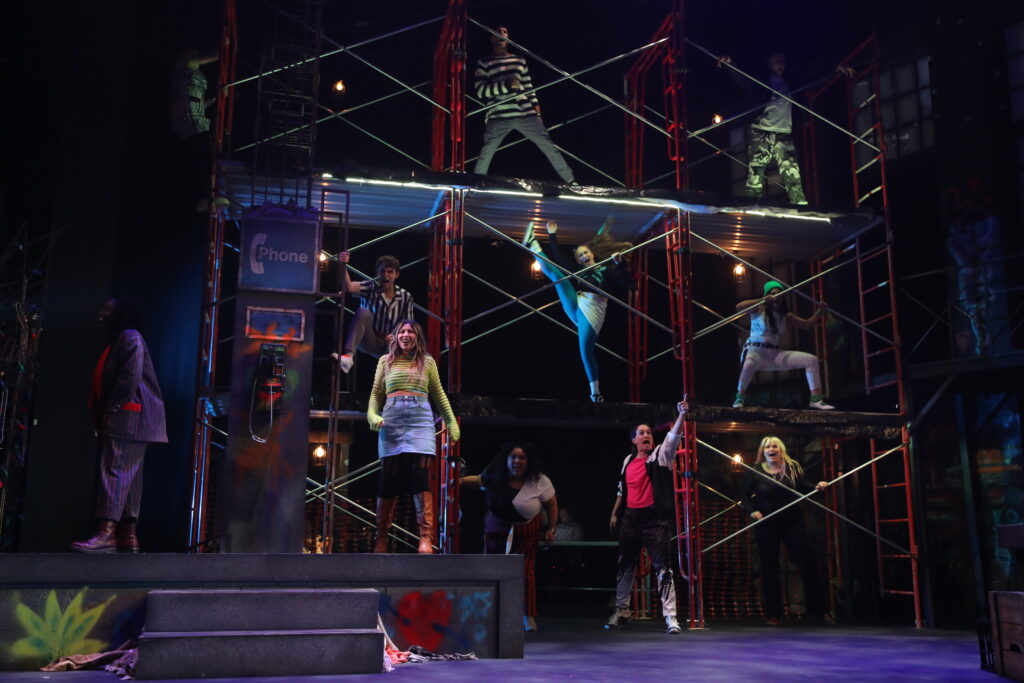
 It’s well-known that RENT is based, in part, on Puccini’s opera, La Boheme, which, coincidentally or not, is also currently on stage at TPAC’s larger theatre, the Andrew Jackson Theatre as presented by Nashville Opera. In Puccini’s opera, the action begins in the cold dark apartment of two artists, one a painter, the other a writer, both struggling to make a living and pay their rent.
It’s well-known that RENT is based, in part, on Puccini’s opera, La Boheme, which, coincidentally or not, is also currently on stage at TPAC’s larger theatre, the Andrew Jackson Theatre as presented by Nashville Opera. In Puccini’s opera, the action begins in the cold dark apartment of two artists, one a painter, the other a writer, both struggling to make a living and pay their rent.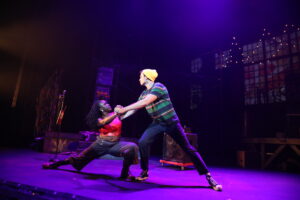 Van Meter’s Mark is vibrant and full of hope, something not always seen in portrayals of this central character. A definite welcomed interpretation. Van Meter supports the soundtrack throughout, but it’s when he’s featured in numbers like ‘Tango Maureen’ (also featuring powerhouse vocals by Carli Hardon as Maureen’s current love interest, Joanne). Van Meter’s Act 2 solo, ‘Goodbye, Love’ also gives opportunity for his voice to be truly appreciated.
Van Meter’s Mark is vibrant and full of hope, something not always seen in portrayals of this central character. A definite welcomed interpretation. Van Meter supports the soundtrack throughout, but it’s when he’s featured in numbers like ‘Tango Maureen’ (also featuring powerhouse vocals by Carli Hardon as Maureen’s current love interest, Joanne). Van Meter’s Act 2 solo, ‘Goodbye, Love’ also gives opportunity for his voice to be truly appreciated.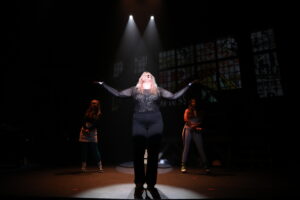
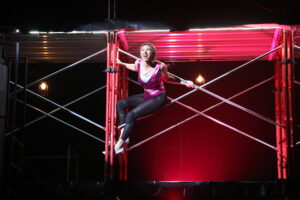 Cast as their on-again-off-again love interests are Natalie Rankin as Maureen, who dumped Mark for a female lover and Marena Lucerno as Mimi, a drug-addicted lost soul who wonders into Mark and Roger’s apartment literally and figuratively looking for light. Rankin’s Maureen is ballsy and unafraid. Even my absolute least favorite musical number, ‘Over the Moon’ is hilariously enjoyable in the capable hands and voice of Rankin. As for Lucerno’s Mimi, she hides her insecurities behind a brash exterior. Both sides of her character are showcased in a couple of the show’s numbers. Her softer side shines bright alongside Sallee’s Roger in ‘Light My Candle’, while her more flamboyant exterior revs up the vibe in ‘Out Tonight’.
Cast as their on-again-off-again love interests are Natalie Rankin as Maureen, who dumped Mark for a female lover and Marena Lucerno as Mimi, a drug-addicted lost soul who wonders into Mark and Roger’s apartment literally and figuratively looking for light. Rankin’s Maureen is ballsy and unafraid. Even my absolute least favorite musical number, ‘Over the Moon’ is hilariously enjoyable in the capable hands and voice of Rankin. As for Lucerno’s Mimi, she hides her insecurities behind a brash exterior. Both sides of her character are showcased in a couple of the show’s numbers. Her softer side shines bright alongside Sallee’s Roger in ‘Light My Candle’, while her more flamboyant exterior revs up the vibe in ‘Out Tonight’.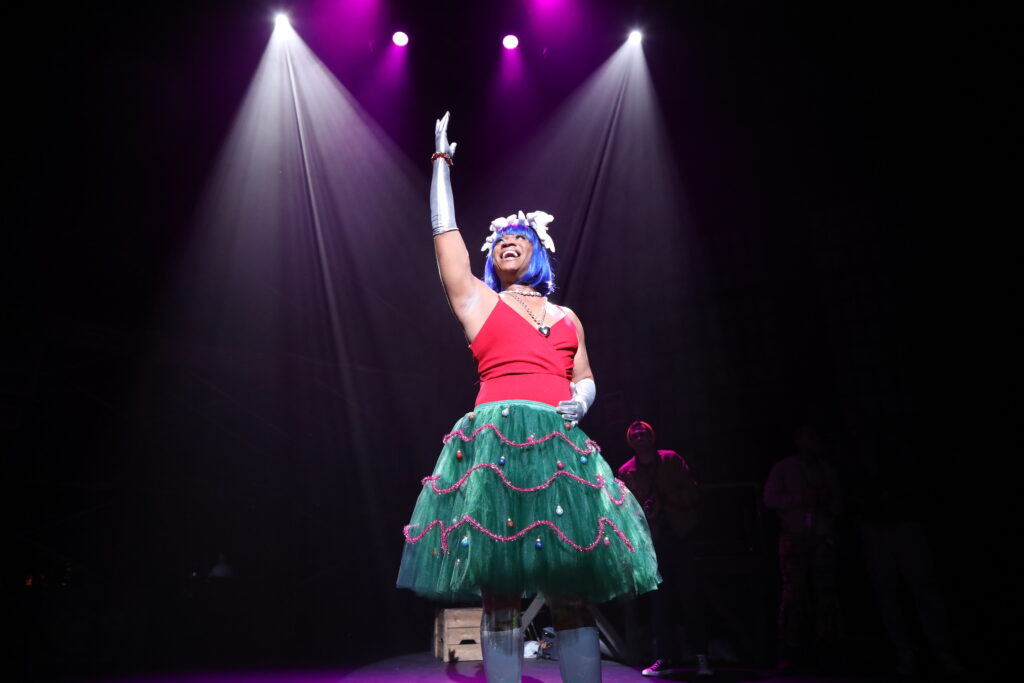
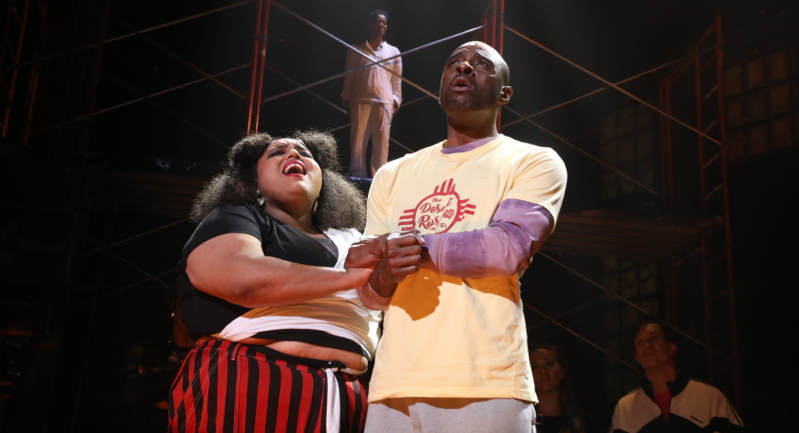
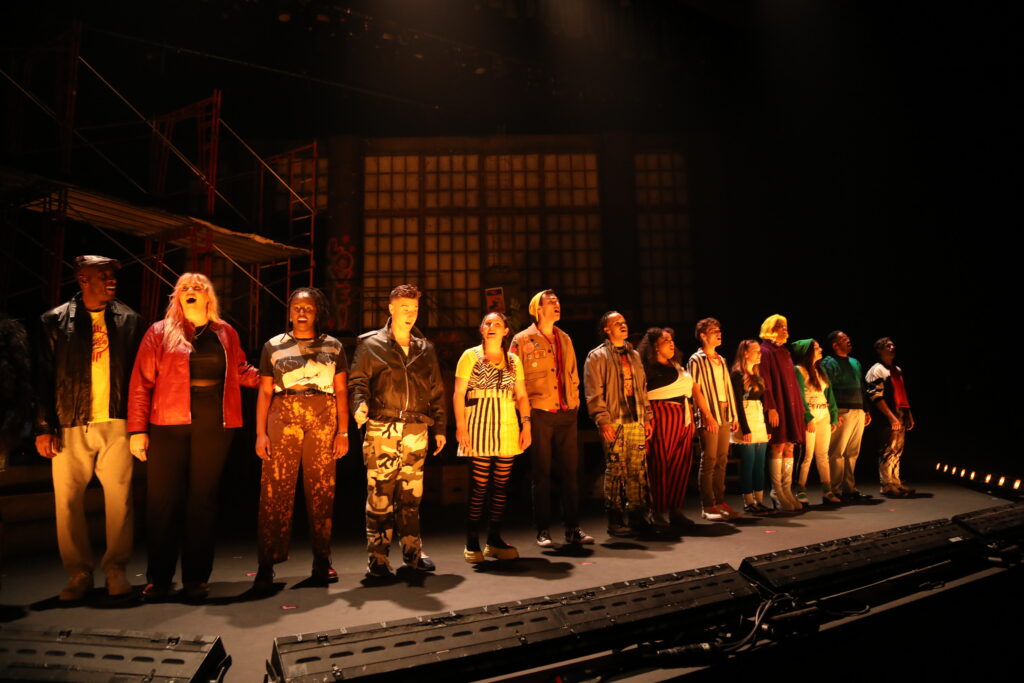
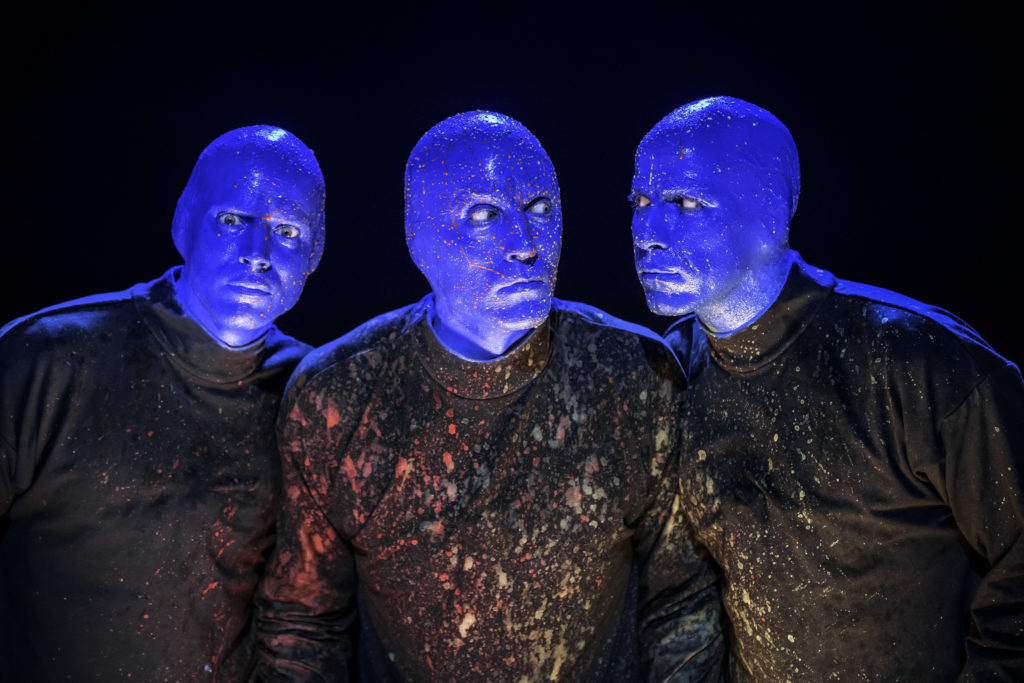
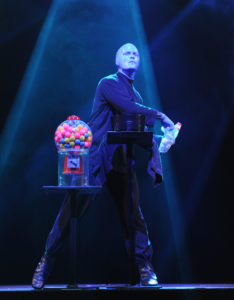
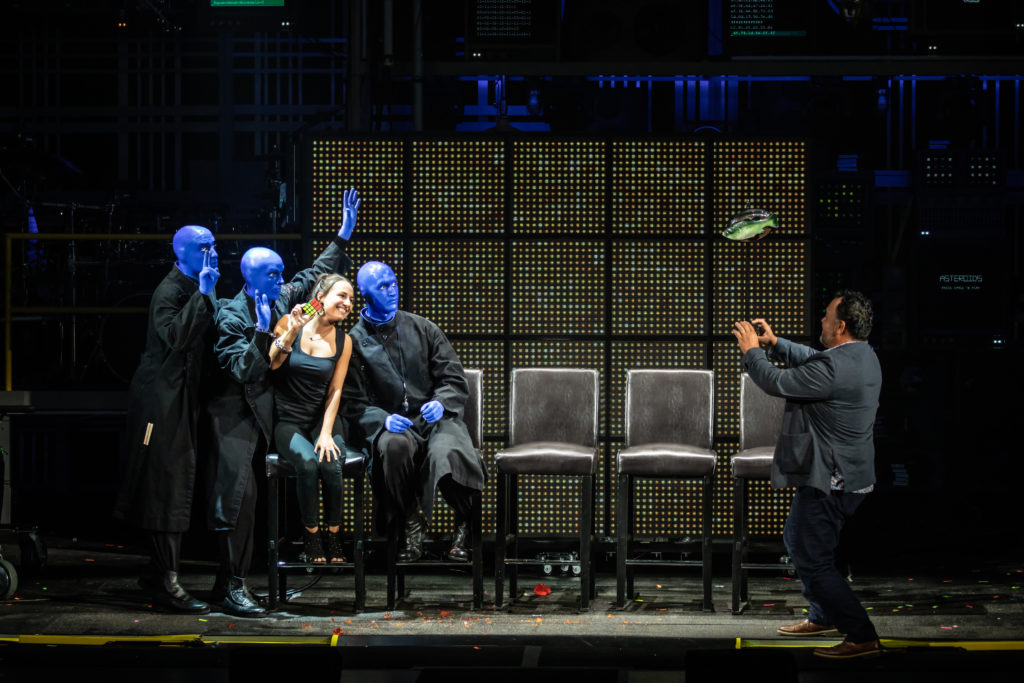
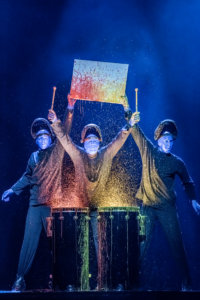
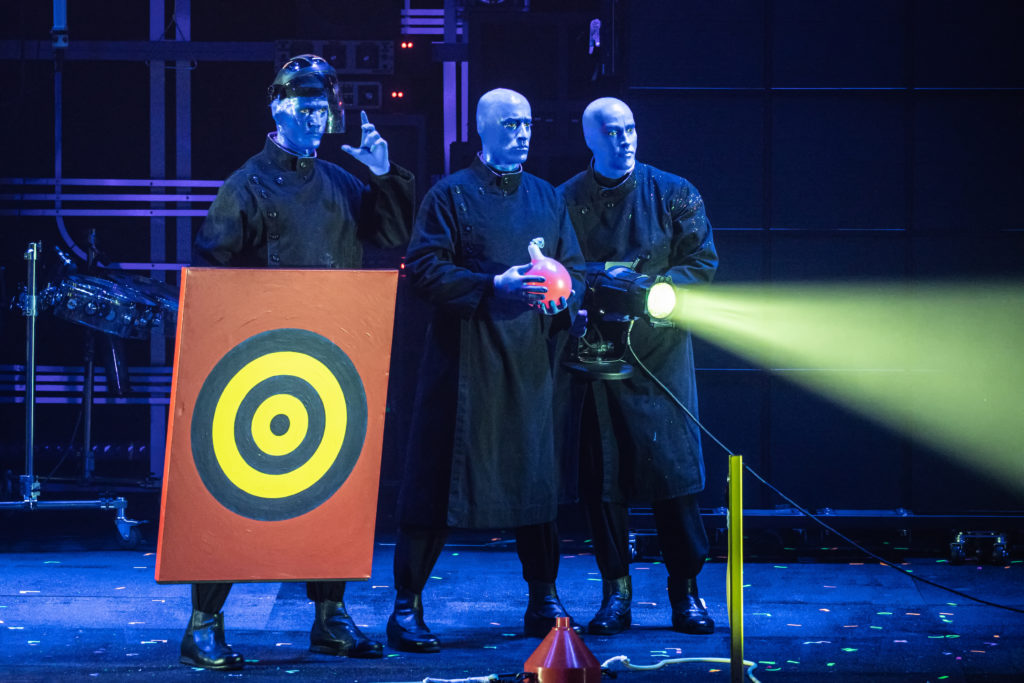

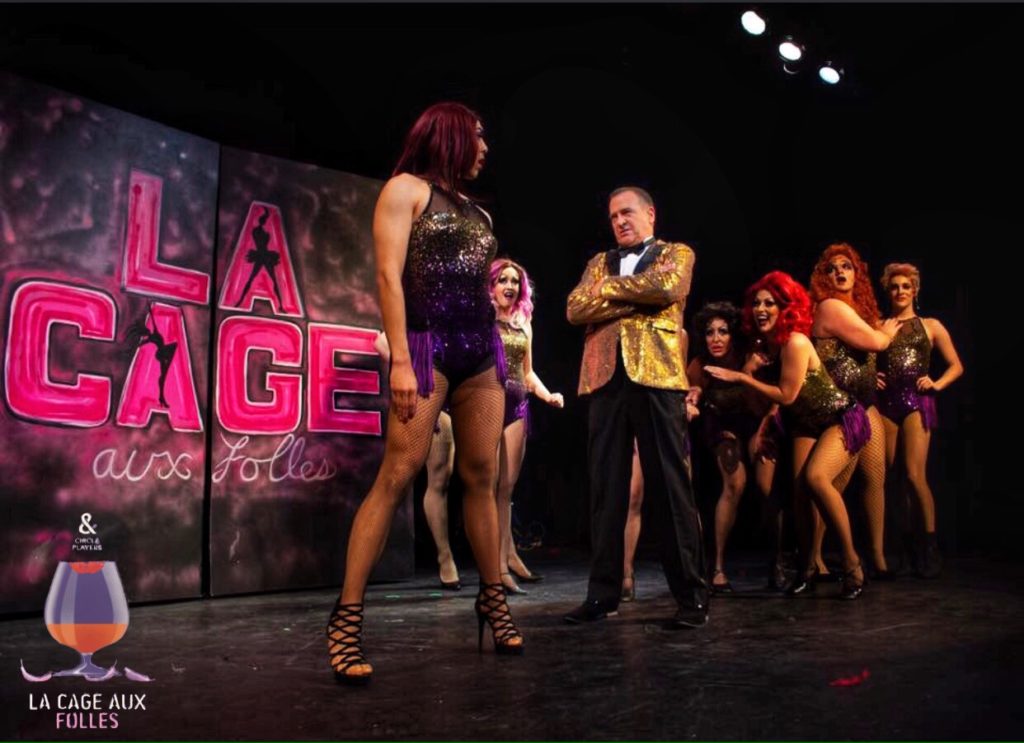





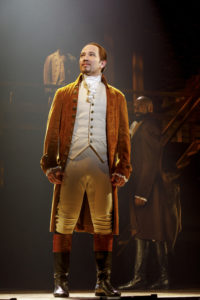
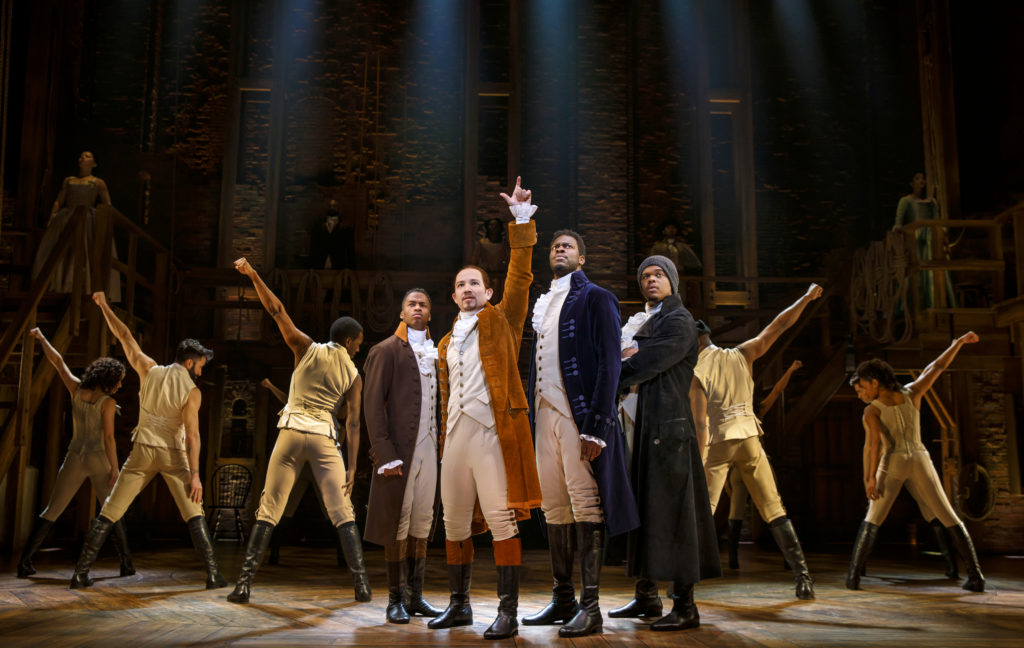
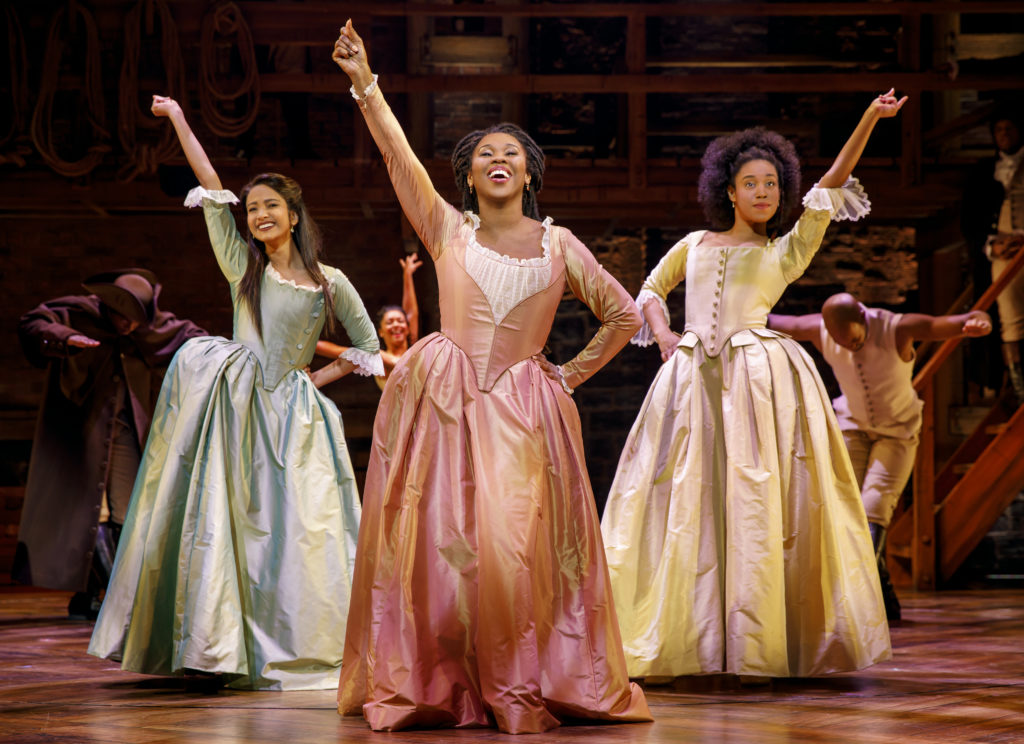


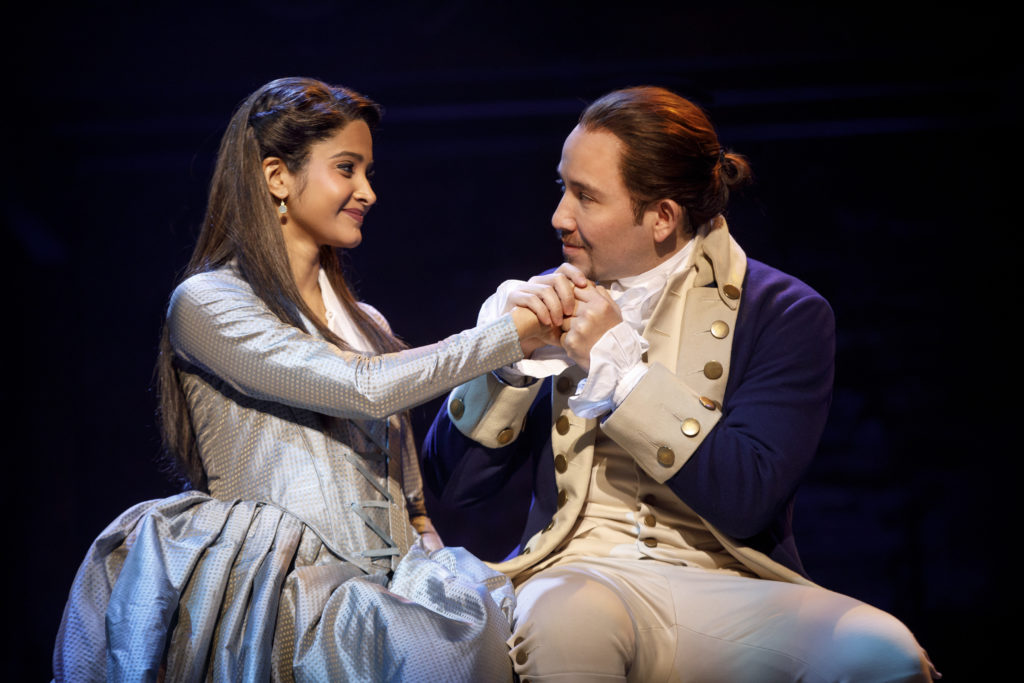
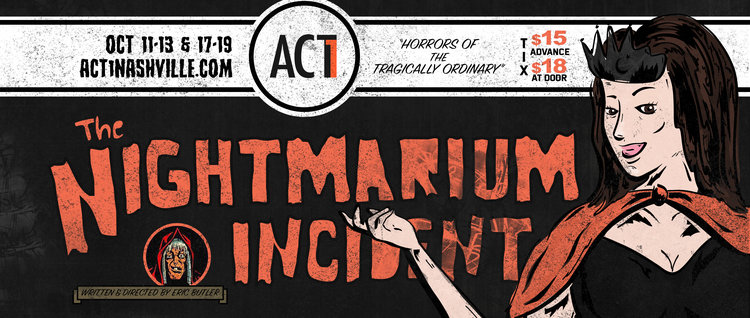

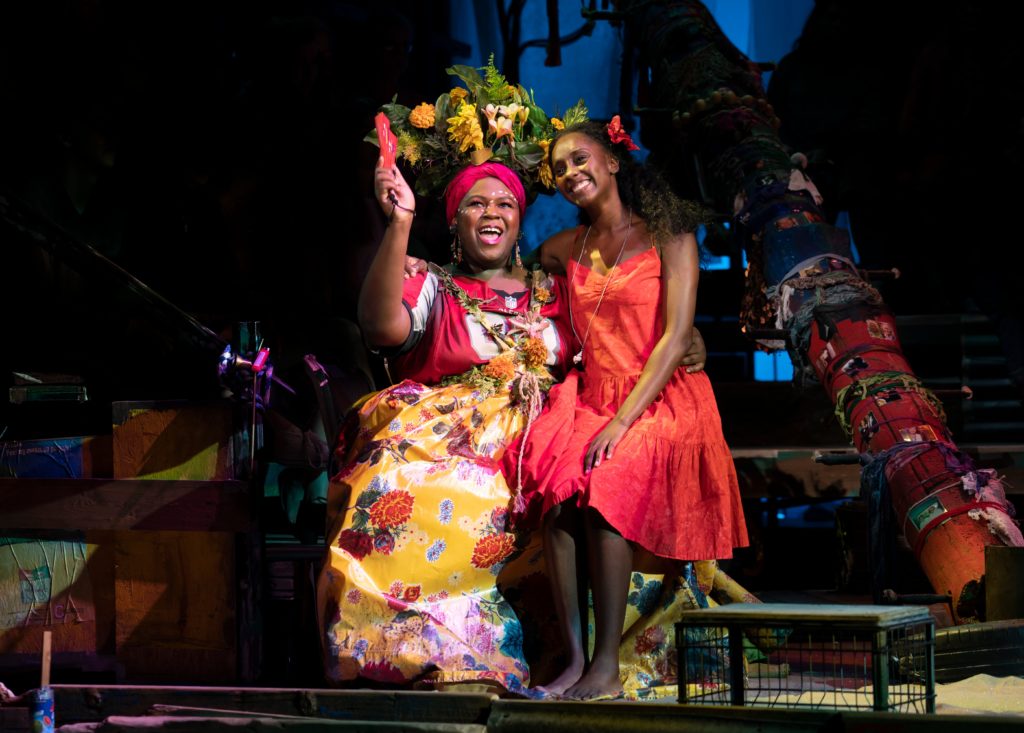
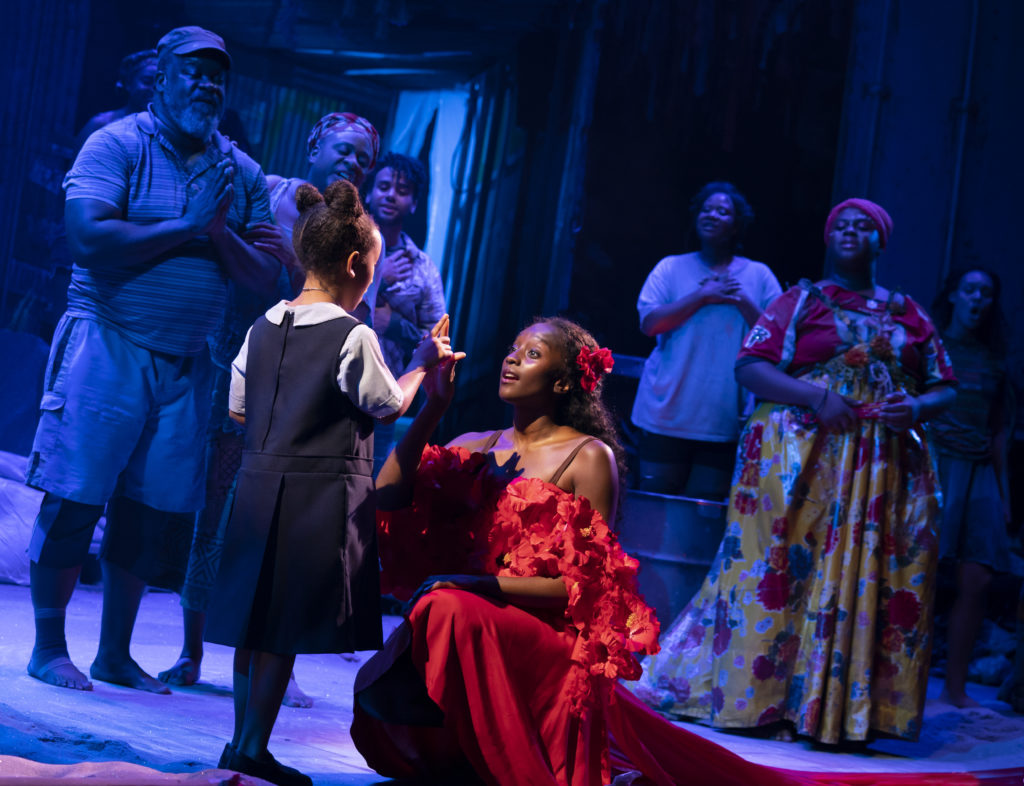
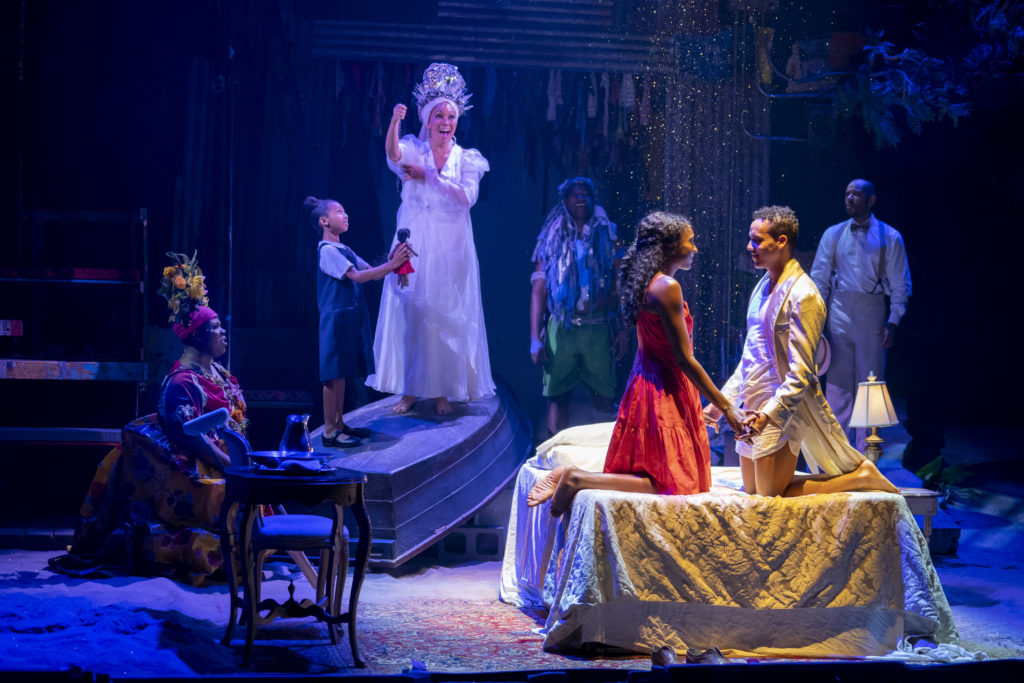
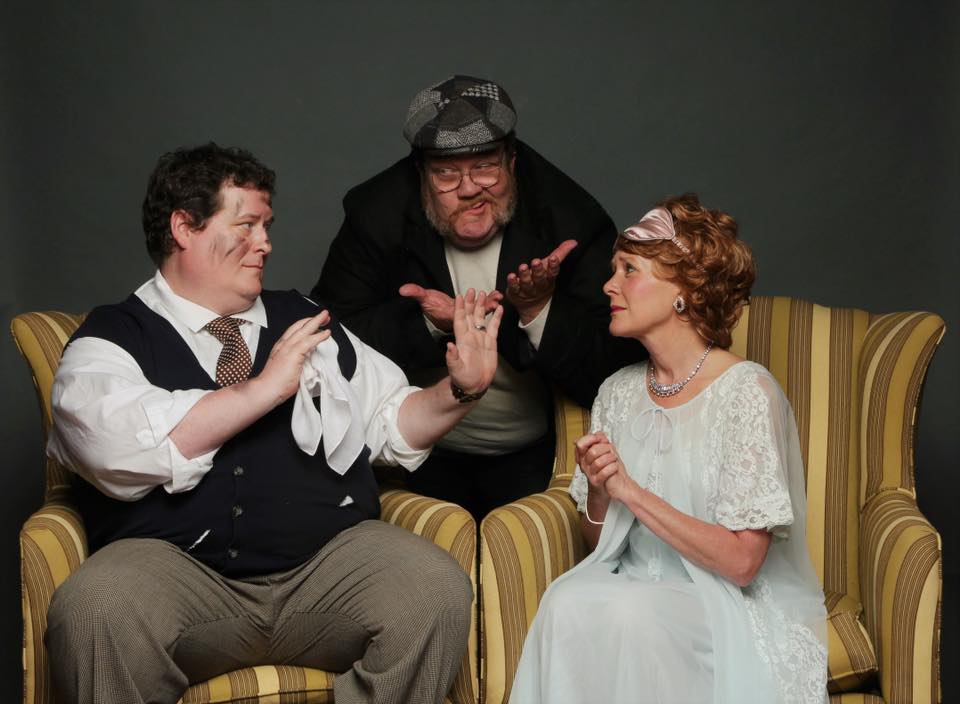

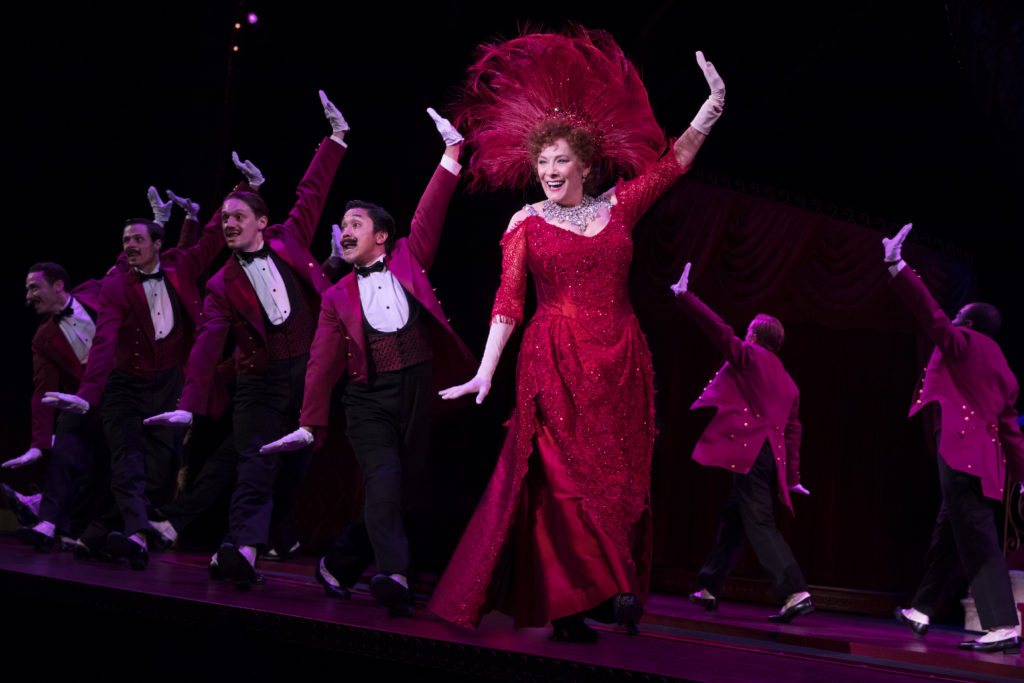

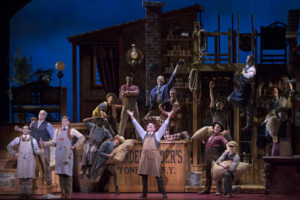 I could go on an on about Buckley’s performance and yes, she could absolutely simply stand on stage and sing each of the songs from Hello Dolly in concert and thrill audiences, but alas there’s more to Hello Dolly than Dolly Levi. For starters, Lewis J. Stadlen as the aforementioned Horace Vandergelder perfectly embraces the time period as the blustering, and frequently flustered half-millionaire. Part Al Lewis, part Jimmy Durante, part Burgess Meredith, Stadlen is indeed the perfect match and compliment to Buckley’s Levi.
I could go on an on about Buckley’s performance and yes, she could absolutely simply stand on stage and sing each of the songs from Hello Dolly in concert and thrill audiences, but alas there’s more to Hello Dolly than Dolly Levi. For starters, Lewis J. Stadlen as the aforementioned Horace Vandergelder perfectly embraces the time period as the blustering, and frequently flustered half-millionaire. Part Al Lewis, part Jimmy Durante, part Burgess Meredith, Stadlen is indeed the perfect match and compliment to Buckley’s Levi. Then there’s the two young gentlemen who work for Horace, Cornelius Hackl and Barnaby Tucker (Nic Rouleau and Sean Burns), who decide to follow Dolly and Horace on an adventure to New York City with the simple goal of kissing young ladies while in the big city. Dolly and the young Yonkers residents are all showcased in one of Act 1’s most gorgeous numbers, Put on Your Sunday Clothes, one of my many personal favorite tunes in the show. During this number, its more than evident why scene and costume designer Santo Loquasto won one of the revival’s four Tony Awards, as the costumes are absolutely stunning.
Then there’s the two young gentlemen who work for Horace, Cornelius Hackl and Barnaby Tucker (Nic Rouleau and Sean Burns), who decide to follow Dolly and Horace on an adventure to New York City with the simple goal of kissing young ladies while in the big city. Dolly and the young Yonkers residents are all showcased in one of Act 1’s most gorgeous numbers, Put on Your Sunday Clothes, one of my many personal favorite tunes in the show. During this number, its more than evident why scene and costume designer Santo Loquasto won one of the revival’s four Tony Awards, as the costumes are absolutely stunning.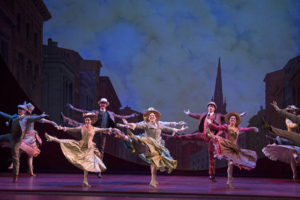 As Act 1 winds down, the audience is treated to Dancing, a nearly all-in, all-out choreo number that builds the anticipation of the inevitable pairings.
As Act 1 winds down, the audience is treated to Dancing, a nearly all-in, all-out choreo number that builds the anticipation of the inevitable pairings.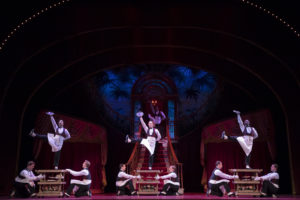 Truth be told, Act 2 begins with what I consider the weakest number, Penny in My Pocket, but with Stadlen performing it as what is essentially a one man solo vaudeville number directly addressing the audience, it works.
Truth be told, Act 2 begins with what I consider the weakest number, Penny in My Pocket, but with Stadlen performing it as what is essentially a one man solo vaudeville number directly addressing the audience, it works.

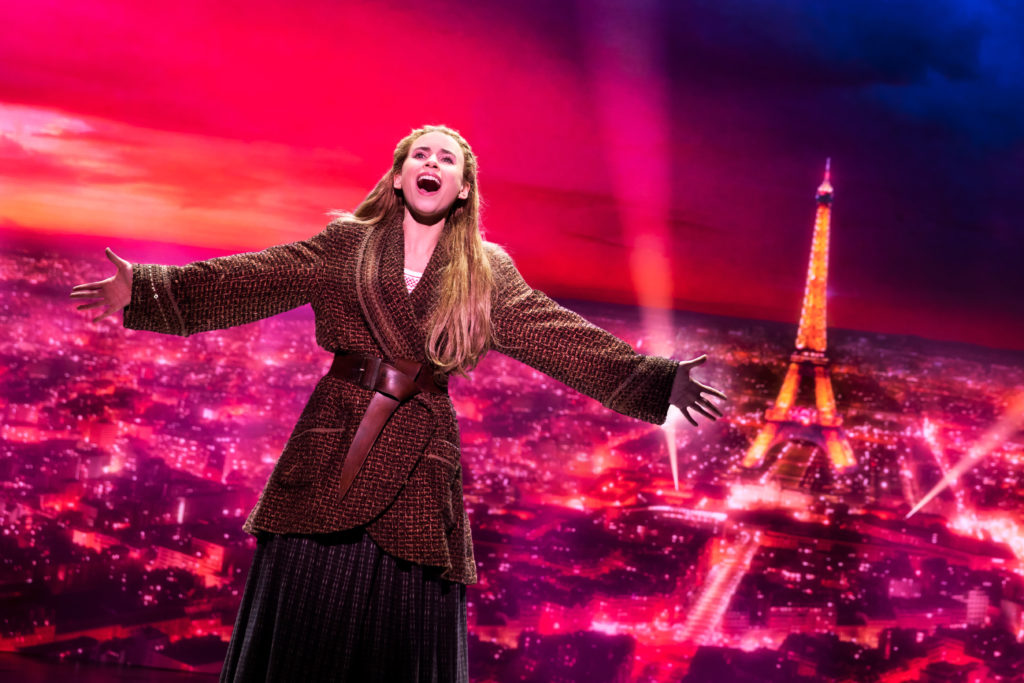
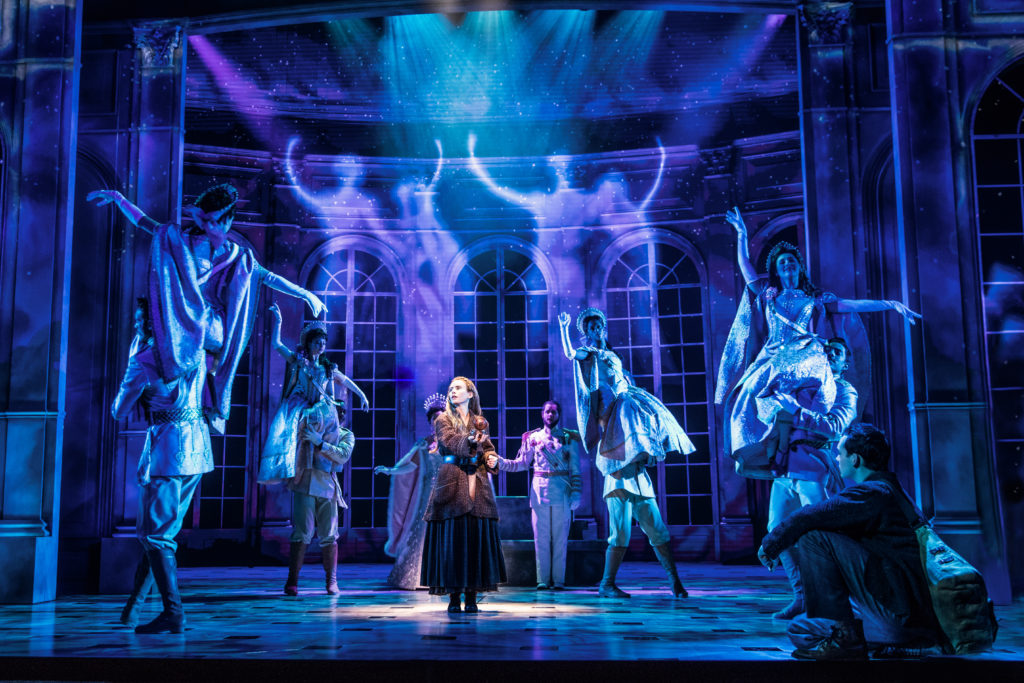
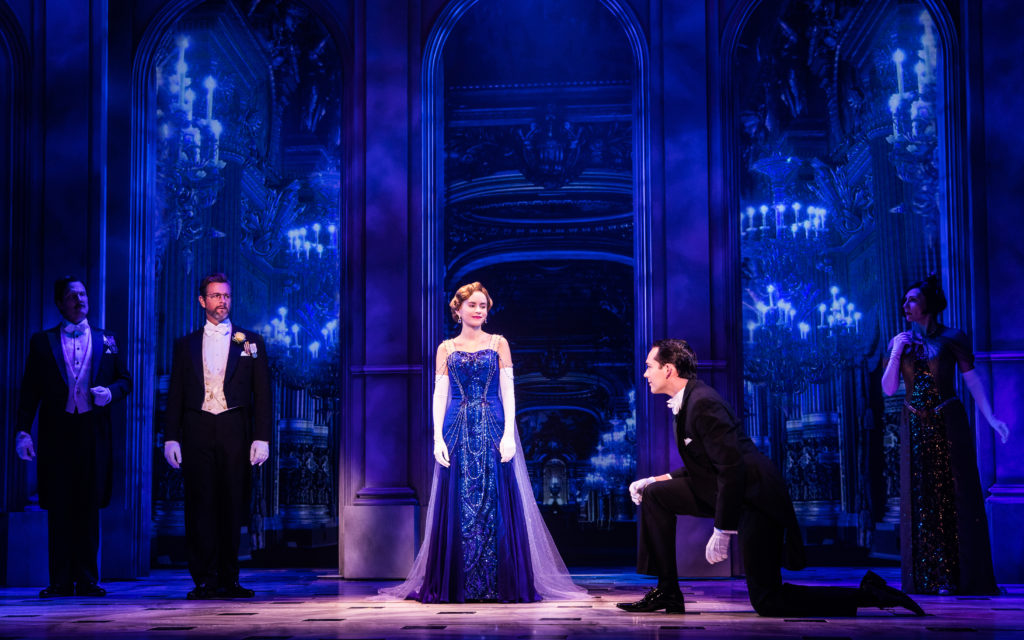
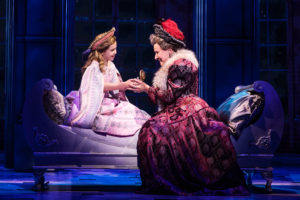 Of the musical highlights, Joy Franz and young Victoria Bingham as The Dowager Empress and Young Anastasia get this off on a high note with the above-referenced show-opening Once Upon A December. It’s such a touching moment and completely serves to set up the relationship between Anastasia and her elder relative, a vital point within the tale’s featured plotline.
Of the musical highlights, Joy Franz and young Victoria Bingham as The Dowager Empress and Young Anastasia get this off on a high note with the above-referenced show-opening Once Upon A December. It’s such a touching moment and completely serves to set up the relationship between Anastasia and her elder relative, a vital point within the tale’s featured plotline. Another bright, undeniable high point comes in Act Two when Vlad and Lily (one of the conmen and the Dowager Empress’ Lady in Waiting) duet on The Countess and The Common Man. The comedic timing and hilarious physicallity of Tari Kelly as The Countess Lily and Edward Staudenmayer as Vlad during this number evokes memories of Carol Burnett and Harvey Korman during their heyday on The Carol Burnette Show, spoofing many an overly melodramatic film classic. A scene perfectly suited for this show that oftentimes gets a bit bogged down in its own grand airs.
Another bright, undeniable high point comes in Act Two when Vlad and Lily (one of the conmen and the Dowager Empress’ Lady in Waiting) duet on The Countess and The Common Man. The comedic timing and hilarious physicallity of Tari Kelly as The Countess Lily and Edward Staudenmayer as Vlad during this number evokes memories of Carol Burnett and Harvey Korman during their heyday on The Carol Burnette Show, spoofing many an overly melodramatic film classic. A scene perfectly suited for this show that oftentimes gets a bit bogged down in its own grand airs.